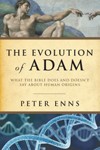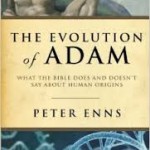 I was taught in seminary and graduate school, as were many others of my generation and several before that, that the OT doesn’t have “a” central point–there’s no central concept around which you can organize the OT. The OT is too diverse for that sort of thing. As soon as you find a theme that seems to work, it either doesn’t (e.g., covenant) or it’s too broad to be of much use (e.g., God).
I was taught in seminary and graduate school, as were many others of my generation and several before that, that the OT doesn’t have “a” central point–there’s no central concept around which you can organize the OT. The OT is too diverse for that sort of thing. As soon as you find a theme that seems to work, it either doesn’t (e.g., covenant) or it’s too broad to be of much use (e.g., God).
I agree, but some themes are right there in your face, more than others, and one of them is getting higher and higher on my top 10 list:
land.
That may sound off a bit boring–maybe even not terribly spiritual–but land is a major idea the Bible keeps on the front burner. Actually, I may even be understating things bit.
The promise to receive land, getting it, how to hold on to it, losing it and getting it back, and how not to lost it again.
I’ve just described the main storyline of the OT.
Land is part of God’s promise to Abraham. Actually, back up. As I laid out in The Evolution of Adam, the Adam
 story is already a snapshot preview of Israel and land.
story is already a snapshot preview of Israel and land.
The Garden of Eden is symbolic of Canaan. Adam and Israel are each placed in a piece of real estate, and remaining in the land depends on obedience to God. Both Adam and Israel break God’s law and are exiled.
Not everyone is convinced by this, which is fine. If you read Evolution of Adam, you will see that I pose this as a legitimate–and undervalued–reading of the Adam story. I’m not riffing. I got this from medieval Judaism:
Just as I led Adam into the garden of Eden and commanded him and he transgressed my commandment, whereupon I punished him by dismissal and exile… so also did I bring his descendants into the land of Israel and command them, and they transgressed my commands and I punished them by dismissal and exile (Genesis Rabbah)
The gift of land, stipulations for remaining there, and being exiled for failing to follow orders is how the OT begins. The rest of Israel’s narrative walks us through this same path, ending with exile–and return.
Israel’s “core narrative” (Genesis-2 Kings; this the older of Israel’s two historical narratives, the other being 1 and 2 Chronicles with Ezra and Nehemiah in the wings) is fixated on land.
 Abraham’s story begins with a guided tour of the land that God promises to give to his descendants. Subsequent action takes place in the land, with the Israel’s ancestors struggling to establish themselves. The Abraham story, in other words, makes the case that the land of Canaan is rightfully Israel’s.
Abraham’s story begins with a guided tour of the land that God promises to give to his descendants. Subsequent action takes place in the land, with the Israel’s ancestors struggling to establish themselves. The Abraham story, in other words, makes the case that the land of Canaan is rightfully Israel’s.
The famine and the Joseph story recount Israel’s move to Egypt, which, according to the Abraham story, is all part of God’s plan to guide his people back home and take back what’s theirs from its wrongful inhabitants, the Canaanites.
Israel is delivered from Egypt not to run free like prairie dogs, but so they can enter Canaan and set up shop. On Mt. Sinai they are given a law code and a sanctuary, not just “because”–but to establish rules of conduct and worship as a landed nation.
Forty years in the wilderness was a delay in receiving the land promise, prompted by Israel’s (actually, the spies’) unfaithfulness in trusting that God would give the land too them. (“Oh, we’ll never conquer that place. They have fortified cities and giants.”)
They enter the land through conquest–namely, wiping out the Canaanites and others who get in their way. God is determined to get them into the land at all costs.
The period of the monarchy and divided monarchy is one long series of bad tales that explain why the land was eventually lost–namely disobeying Yahweh by worshiping foreign gods. First to go is the larger northern kingdom in 722 BC at the hand of the Assyrians. Next to go is the southern kingdom of Judah at the hand of the Babylonians in 586 BC.
Prophetic warnings often deal with the consequences of Israel’s disobedience–the threat of losing the land, chided for having lost it, or what God is going to do restore the people to it.
I’m all on board with the fact that Israel’s story has beautiful and inspiring depth, but that’s a topic for another time. The main storyline that runs through Israel’s entire historical narrative and prophetic writings is about
a small nation’s struggle with land—
God’s promise to give it, Israel taking it, what Israel needed to do to keep it, losing it anyway, and getting it back.
“Land” is at the heart of Israel’s story. The NT transforms this story into something else. It has to. We’ll get into in my next post.











